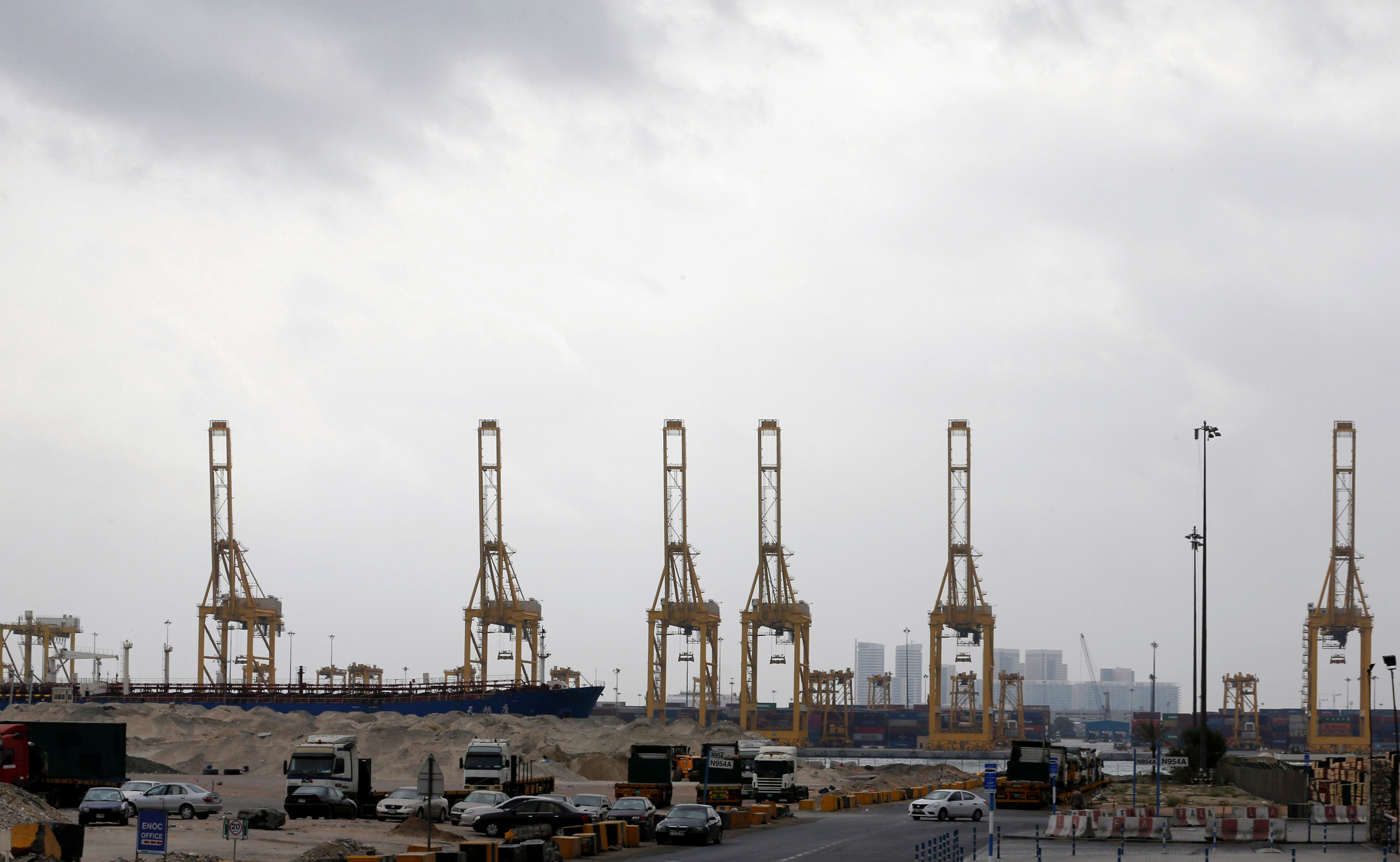
Dubai-based logistics giant DP World reported a significant decline in net profit for the first half of the year, attributing the downturn to disruptions along key shipping routes in the Red Sea. The company’s profit dropped by 59%, a stark contrast to its robust performance in previous periods.
The slowdown in global trade, coupled with geopolitical tensions affecting major maritime corridors, has had a severe impact on DP World’s operations. Shipping volumes through the Red Sea, a vital artery for international trade, have been notably reduced due to security concerns and logistical challenges. This decline has directly affected the company’s revenue, which saw a steep drop, leading to a corresponding decrease in profitability.
According to industry experts, the situation in the Red Sea is a significant concern for global trade, given the strategic importance of the region. The Red Sea serves as a crucial link between Europe, Asia, and Africa, and any disruption in this area can have widespread repercussions. The rise in piracy, ongoing conflicts, and political instability in adjacent regions have exacerbated the difficulties faced by shipping companies operating in these waters.
DP World has been striving to mitigate these challenges by diversifying its operations and seeking new revenue streams. The company has made significant investments in emerging markets and has expanded its presence in regions less affected by the current geopolitical tensions. However, these efforts have not yet fully compensated for the losses incurred due to the situation in the Red Sea.
The logistics giant’s management remains cautiously optimistic about the future, emphasizing that the current downturn is largely due to external factors beyond the company’s control. They have expressed confidence that once stability returns to the Red Sea region, DP World’s performance will rebound. In the meantime, the company is focusing on optimizing its operations and reducing costs to weather the downturn.
Despite the challenges, DP World continues to play a vital role in global trade. The company manages ports, terminals, and logistics operations across six continents, making it a key player in the international supply chain. Its extensive network of assets and strategic locations has allowed it to maintain a significant market share, even in the face of adverse conditions.
Market analysts note that while the company’s short-term prospects may be uncertain, its long-term outlook remains strong. DP World’s ability to adapt to changing market conditions, coupled with its ongoing investments in technology and infrastructure, positions it well for future growth. The company has also been exploring new business opportunities in the digital logistics space, which could provide additional revenue streams in the coming years.
In the broader context, the challenges faced by DP World highlight the vulnerability of global trade to geopolitical risks. As international tensions rise, the stability of key shipping routes like the Red Sea becomes increasingly critical. Companies operating in the logistics sector must remain vigilant and adaptable, ready to respond to sudden changes in the global landscape.
DP World’s experience serves as a reminder of the interconnected nature of global trade. Disruptions in one region can have far-reaching effects, impacting companies and economies around the world. As the situation in the Red Sea evolves, the global logistics industry will be closely monitoring developments, with the hope that stability can be restored and trade flows can return to normal levels.
DP World’s next steps will be crucial in determining its future trajectory. The company’s ability to navigate the challenges posed by the current geopolitical environment will be a key factor in its ability to recover and thrive in the long term. For now, the focus remains on managing the immediate impact of the Red Sea disruptions while preparing for future opportunities in a rapidly changing global market.



